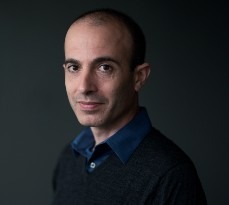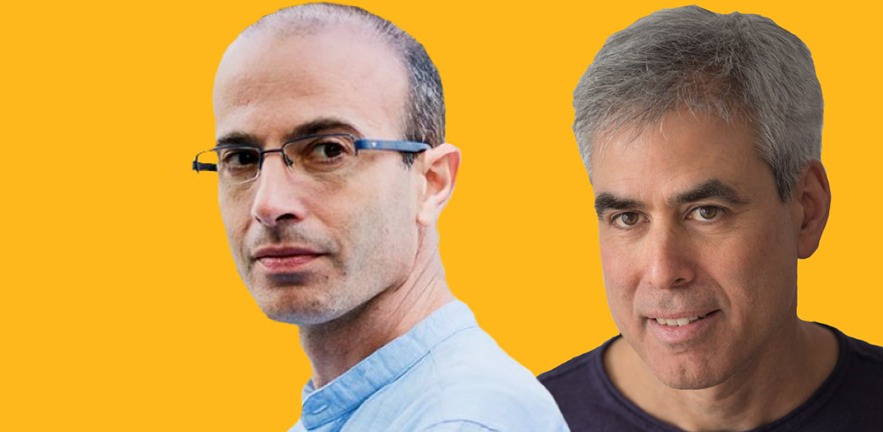
Society needs new rules for modern information technology that now undermines trust and civility while fulfilling the ancient “dream of tyrants and dictators” for sweeping surveillance, Israeli historian Yuval Noah Harari told a webinar at Cambridge Judge Business School.
There is always a ‘period of chaos’ when new information technology emerges and before new rules or institutions of trust emerge, he said.
The webinar entitled Adapting to Change in an Accelerating World was a discussion between Yuval Noah Harari and Jonathan Haidt of New York University’s Stern School of Business. It was organised by Cambridge Judge MBA students Gilad Weil, Aaron D’Souza and Tim Belitza (all MBA 2020) as the final interview in this year’s Leading Lights series led by MBA students, and co-ordinated by the Business School’s Alumni & External Engagement team.
“Change is now accelerating, we are seeing more change, faster change than ever before. It’s becoming difficult to know what is new and what is old,” said Harari, author of the best-selling book Sapiens and other works, and a professor in the Department of History at the Hebrew University of Jerusalem.
“Some things we think are very new, like fake news, have been with us always. As a Medievalist originally, I can tell you that fake news was a much, much worse problem in the Middle Ages than today, whereas other things are really completely new: for instance, for the first time in history it is now almost possible to follow everybody all the time. This was of course a dream of tyrants and dictators from ancient times; until the 20th Century it was never possible, and now it’s possible and it’s a complete game changer.

“What is old is that every time a new information technology emerges, it changes the rules of discussion, it undermines old institutions of trust, old rules of civility, of holding a conversation, who can talk, what can we talk about, and there is a period of chaos. And this isn’t necessarily bad, it usually allows more people, more groups to join the conversation, but we don’t know the rules yet.”
For example, many people now believe that the emergence of the printing press in the late Middle Ages “was such a wonderful thing that led to the scientific revolution, but most books printed at that time were conspiracy theories about witches and Jews and whatever, and it took time to build new institutions of trust like newspapers, like academic publishers.”
Jonathan Haidt, Professor of Ethical Leadership at Stern School of Business, said he was concerned that conditions had changed since 2011, which he described as the ‘peak year’ for ‘techno-optimism’ owing to the Arab Spring and other developments, as the use of online algorithms accelerated.
“Most of my life I’ve been something of an optimist about the future, and I love technology, but I have to tell you that in the past couple of years, as a social psychologist, I have a distinct sense that something deep has changed so that we are in a complex dynamical system with radically new parameters that we do not understand,” he said.
“My concern is that when Facebook and Twitter basically democratised intimidation and harassment – you can now damage anybody at any time and often anonymously – my fear is that this has put us in a new world where we don’t know what we’re doing, institutions are collapsing.”
Harari said that artificial intelligence also opens up troubling new challenges: “A new alien intelligence has invaded our life, not from a distant planet, but from the laboratories”.
“It is a game changer, because unlike all previous information technology it can take decisions on its own, it can analyse us, it can hack us. The printing press couldn’t do it, the radio couldn’t do it, but the new technology can do it. For the first time in history it is possible to hack human beings and therefore also manipulate human beings on an unprecedented scale. And we don’t know how to deal with it, we really have no traditions of how to deal with it.”
In an introduction to the webinar, the new Dean of Cambridge Judge, Professor Mauro Guillén, said: “I’m always delighted to learn about activities, about events organised by the students. ‘Leading Insights’ is one that aims to engage and connect students within the Business School with global leaders of all industries and backgrounds from around the world”.
An article about Yuval Noah Harari, based partly on the Cambridge Judge webinar, was published in The Telegraph newspaper on 28 October.


